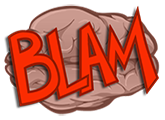Research Areas
1. Motor learning and motor memory
We are interested in how people learn new motor skills through practice, and adapt these skills to changing conditions. We study a range of learning tasks including simple visuomotor associations, implicit adaptation to sensorimotor perturbations, de novo learning of brand new skills, and long-term learning of complex skills.
2. Mechanisms of Movement Control and Movement Planning
We study principles of movement control and the fundamental processes involved in movement preparation, which we examine through behavioral experiments and by building computational models of control. We are especially interested in how low-level motor control relates to higher-level cognitive decisions about our actions.
3. Habit Formation and Automaticity
Behaviors that we engage in repeatedly become habitual and automatic. We have developed novel approaches to probe habits and leverage these to better understand the principles of when and how our behavior becomes habitual. We are also interested in more precisely understanding the relationship between habit formation and automatictiy and how these phenomena contribute to learning complex skills.
4. Motor Impairment and Recovery after Stroke
We seek to apply insights into fundamental principles of motor control and motor learning to better understand the nature of motor impairment in neurological diseases, including stroke. We hope to leverage these insights to develop better approaches to rehabilitation.
